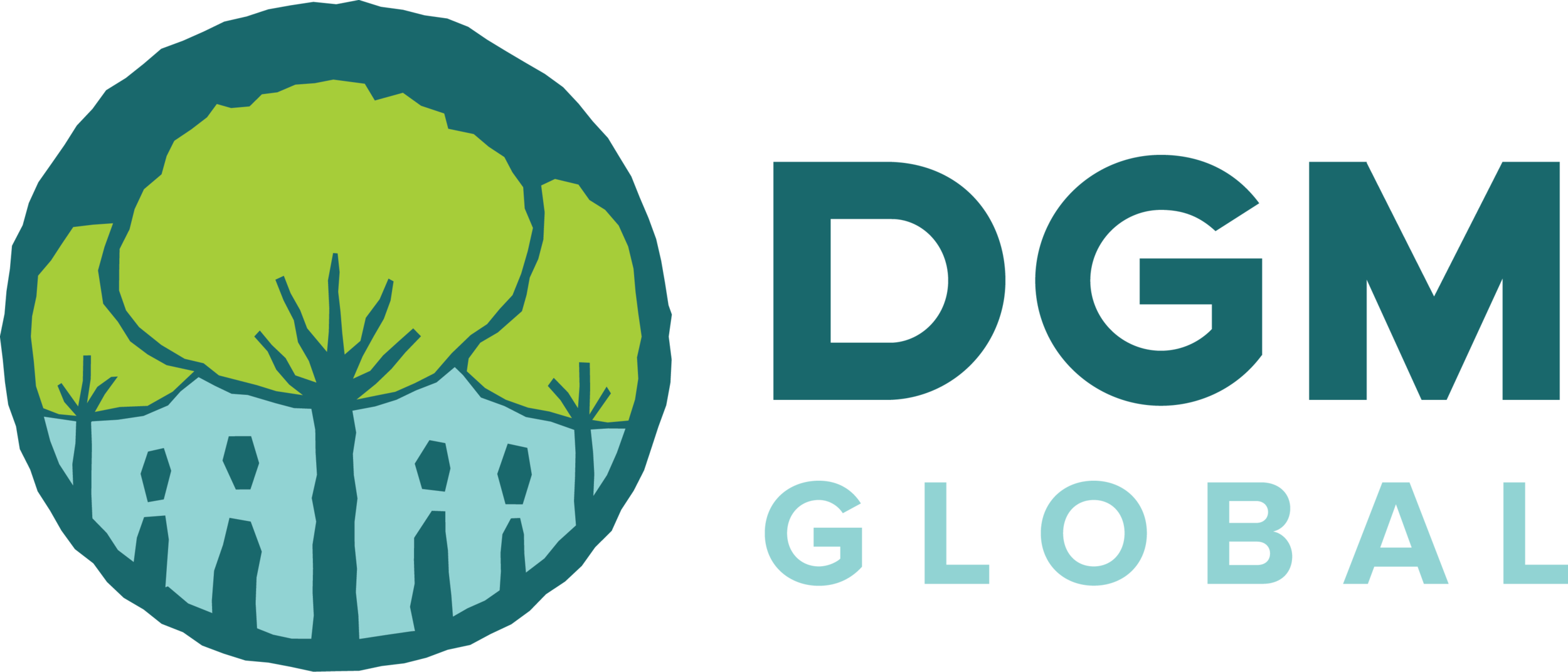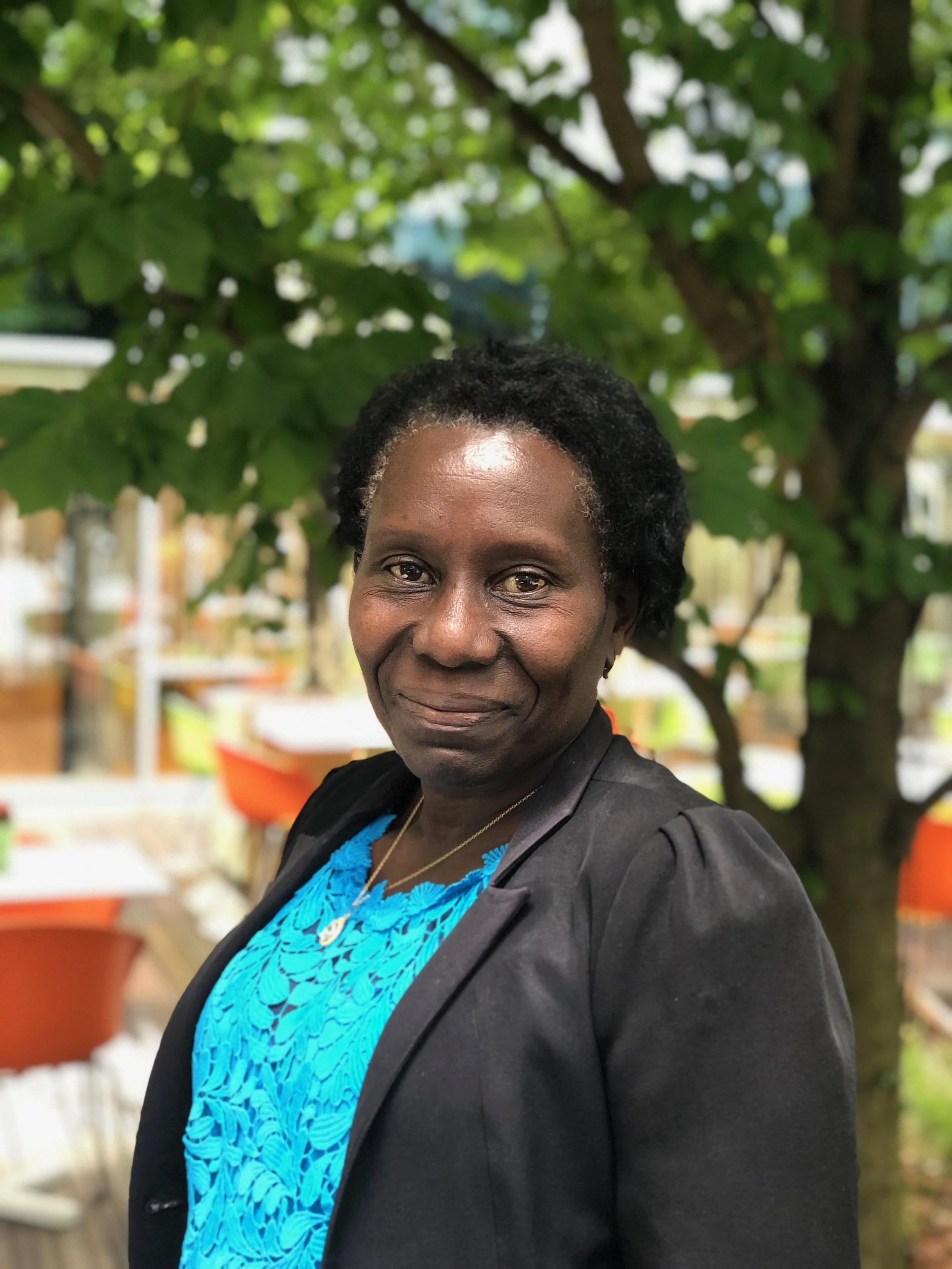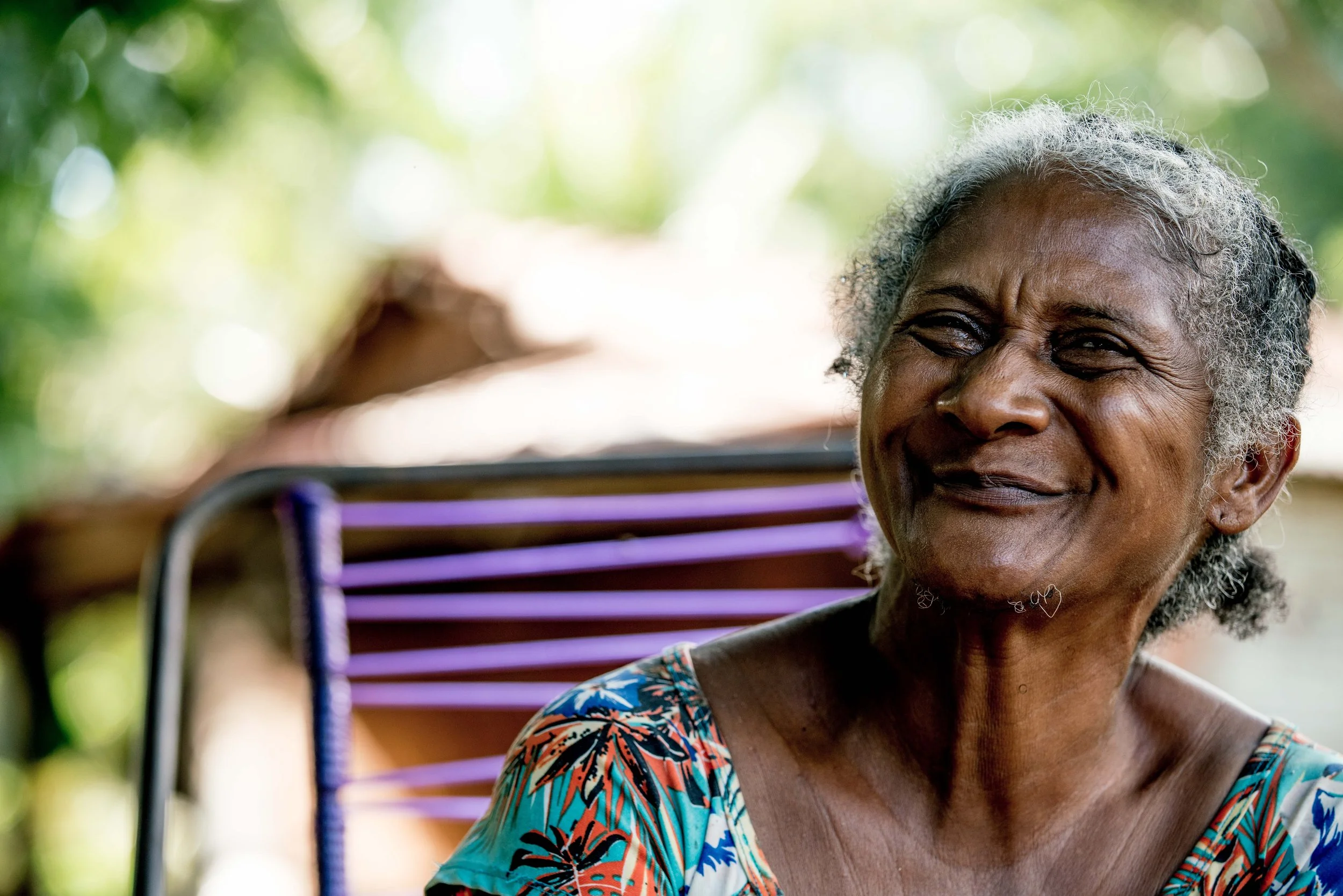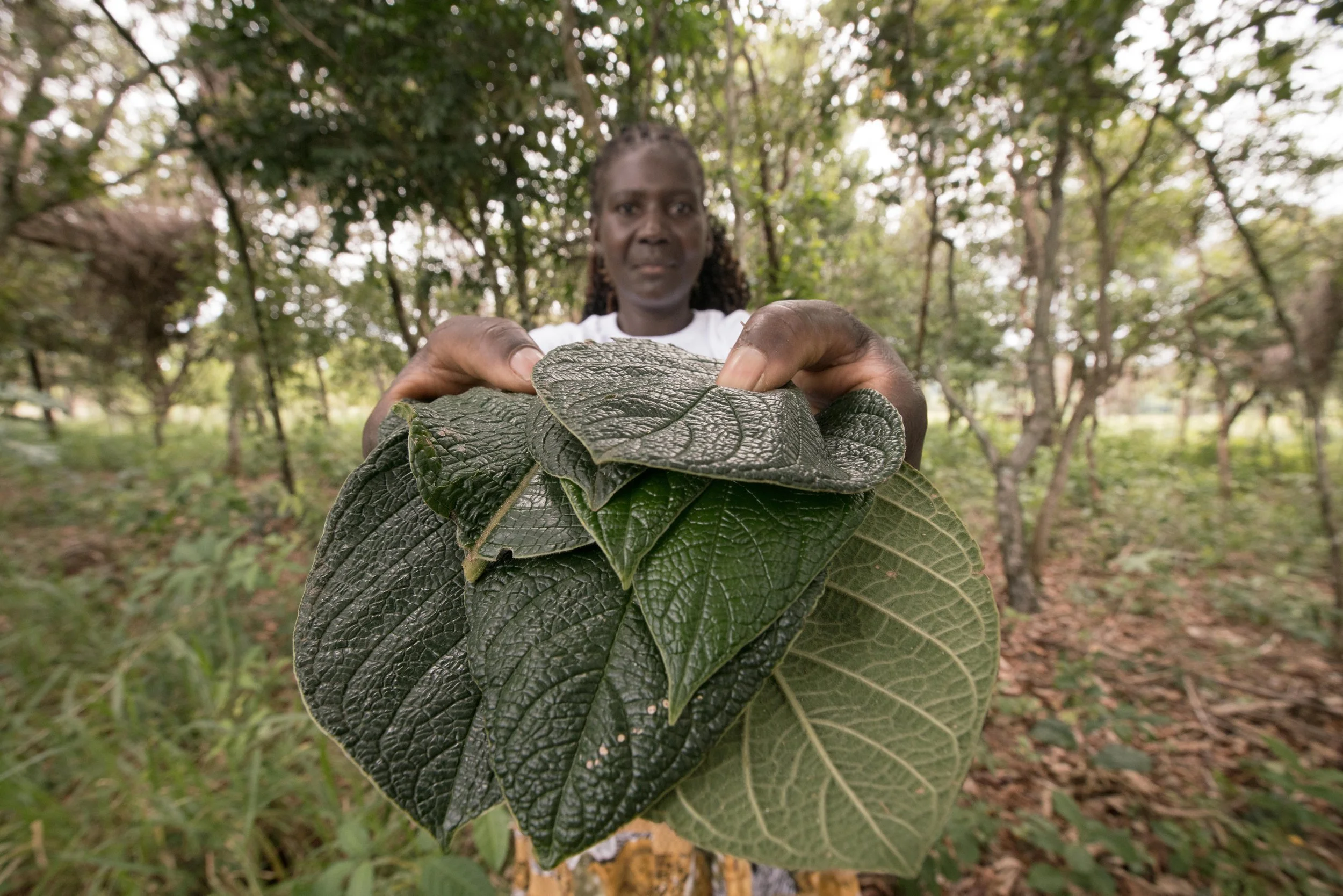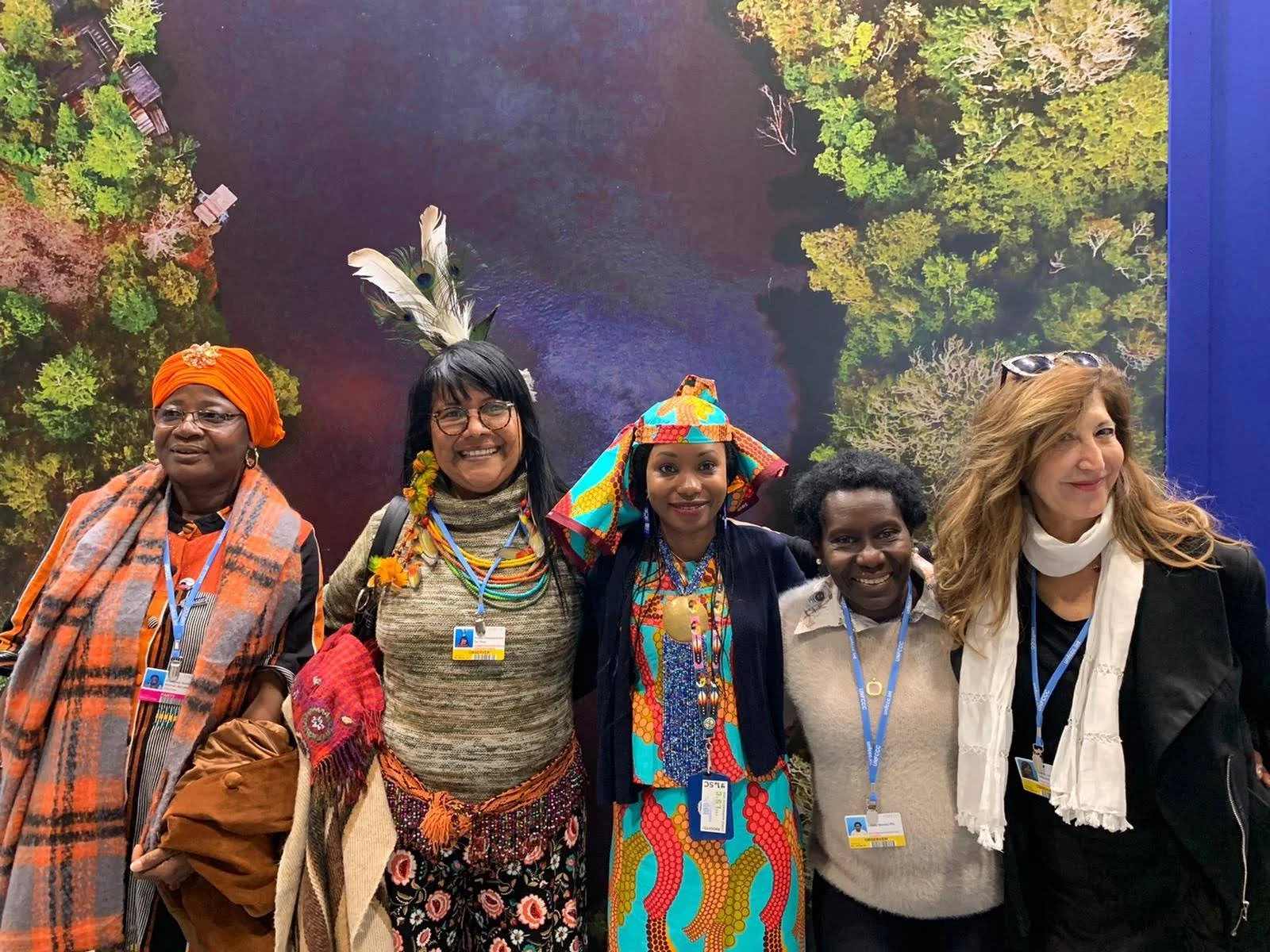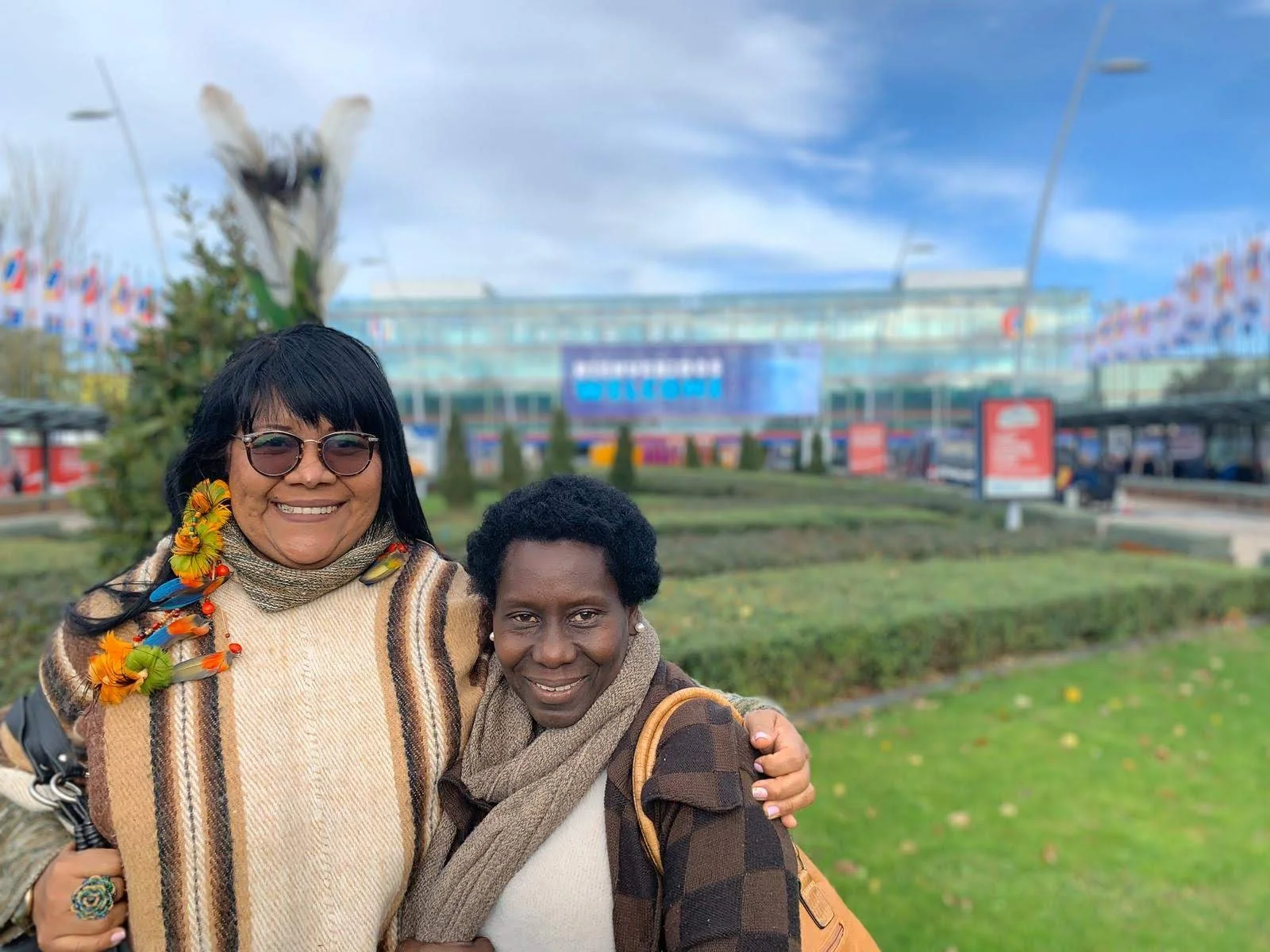International Women's Month 2022: Meet Lucely Pio
DGM Global cannot guarantee the accuracy of Google translations. In case of discrepancies, the original language takes precedence.
Contributed by: Lucely Pio, Articulação Pacari de Plantas Medicinais do Cerrado Representative, DGM Brazil NSC, and GSC member; Lidiane Castro, DGM Global Learning and Knowledge Exchange Manager
In celebration of International Women's Day month, DGM Global invited one of the Global Steering Committee members to share her story and talk about the involvement of women in DGM Brazil projects.
Lucely Moraes Pio is from the quilombola community Cedro in the state of Goiás - Brazil. "Quilombolas" are descendants and remnants of communities formed by runaway slaves or former slaves in the 16th century. Lucely is the great-granddaughter of slaves who worked on a coffee farm in the state of Minas Gerais that after buying their freedom, moved in 1830 to a rural area of Goiás to start a new life. After losing her mother at an early age, she was raised by her maternal grandmother, who worked as a midwife, healer, and herbalist in the community. It was from her that she learned to identify and collect plants from the Cerrado that had medicinal properties and also understand the importance of nature for the health and well-being of her community.
Credit: DGM Global
One of Lucely's greatest dreams was to become a teacher and for five years she worked as a teacher in her community. However, the knowledge and skills she inherited from her grandmother spoke louder and she went back to school to pursue a nursing degree. She recalls the challenges she faced during her trajectory as a woman studying, working, and later occupying leadership positions within the community. "I had big problems with my husband's family when I got my first job because they said that women had to stay home. After five years they finally understood that I wasn't going to stop, and from then on, I started to encourage the women in my family and community (...)". She participated in several projects and training to deepen her knowledge of medicinal plants and community engagement.
One of the great achievements of the Cedro community, through the work of Lucely and other women in the community, was the construction of the Center of Plants, which houses 90 medicinal formulas and 400 species native to the Cerrado, collected and cataloged by the community members in partnership with a university. In 2010, she received a master's degree from the University of Brasília (UNB) and is a faculty member, teaching students in the anthropology and pharmacy majors.
Since 2015 Lucely has been engaged in DGM Brazil, first as a representative of one of the organizations involved in the project and later becoming the coordinator for the national steering committee. Since 2019, she also serves as a member of the Global Steering Committee. "My participation in DGM Brazil made me grow in a whole new dimension and be respected as a leader. Today, I feel that I am respected in my city and in the places I go. I continue to encourage women and youth to assume leadership roles in their communities (...)"
Lucely notices the transformations that have occurred in the communities that were selected as DGM Brazil subprojects, regarding the inclusion of women and youth. She attributes the high participation of women in training courses and in project leadership to the DGM's diligent work from the very first contact, during check-in visits, and in the investment of one-on-one recruitment of women and youth through mentorship. "I remember that in the Kalunga community for example, in the first meeting the women attended they were very quiet, they didn't participate and today it is completely different (...)". Another case cited by Lucely was of an Indigenous women’s handicraft projects in which DGM Brazil had to mediate a series of meetings between the men and women of the village so that the men would understand that the investment in the women’s handicraft project would benefit the village as a whole. "Today, in all the spaces, whether they are associations or cooperatives that the DGM project has reached, we can see great progress and growth in female leadership (...)". Of the 64 subprojects supported, DGM Brazil benefited 11,041 (51.28%) women. In the 13 subprojects led specifically by women, 1,344 women were directly benefited.
The impact of the projects goes beyond respect and dissemination of environmental protection practices, it also has an impact on improving social relations through the inclusion of youth, elderly, children, and particularly women, recognizing the importance of all in keeping the Cerrado standing. “At the end of phase 1 of DGM Brazil, it was moving to see the women of the community who were previously silent, taking a stand and speaking in front of a camera (...)"
One of the most impactful projects Lucely recalls was one in the quilombola community Vão das Alma. It was led by a woman, Wanderleia dos Santos. The Vão das Almas community has a traditional multi day feast that takes place alongside the Rio das Almas. The lack of washbasins and toilets forced the community and visitors to use the river for all purposes. The river was dying and the population that depended on this river was utilizing contaminated water. According to Lucely, one of the challenges of this project was the logistics of building toilets, washbasins, and installing water tanks with pumps in a remote area that is very difficult access. Wanderleia's persistence made this project possible and ensured that the tradition and the river were maintained for the benefit of not one, but all communities that depend on the river for their livelihoods and activities.
“I remember that in the Kalunga community for example, in the first meeting the women attended they were very quiet, they didn’t participate and today it is completely different (...) Today, in all the spaces, whether they are associations or cooperatives that the DGM project has reached, we can see a great advance in the female leadership.”
Credit: Leo Lopes
Credit: Leo Lopes
“My participation in DGM Brazil made me grow in a whole new dimension and be respected as a leader. Today, I feel that I am respected in my city and in the places I go. I continue to encourage women and youth to assume leadership roles in their communities (...)”
Credit: DGM Global
Credit: DGM Global
